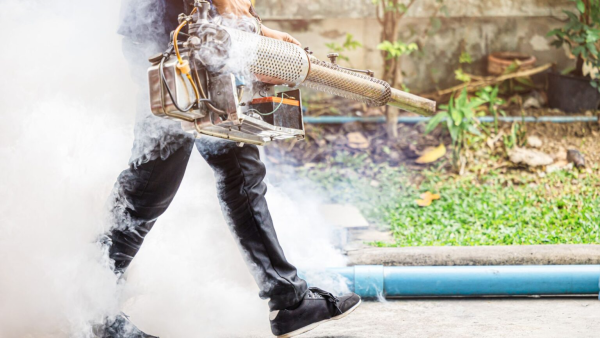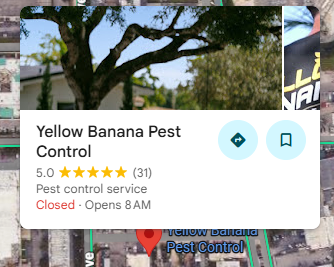Pest Control Efforts Reduce Health Risks in Communities
Effective pest control safeguards public health, food, property, and the environment, reducing disease, allergies, and damage while promoting sanitation, mental well-being, and eco-friendly practices for safer, healthier communities.
Fort Lauderdale, Florida, United States, 20th Nov 2025 – Pest infestations are more than just a nuisance—they pose serious threats to public health and community safety. Effective Pest Control initiatives help protect residents from diseases transmitted by rodents, insects, and other harmful pests. By minimizing exposure to bacteria, allergens, and parasites, these efforts promote cleaner environments and healthier living conditions. Communities that prioritize regular inspections, sanitation, and preventive measures experience fewer outbreaks of pest-related illnesses. Beyond individual homes, large-scale pest management supports urban hygiene and safeguards food sources. Reducing pest populations also contributes to mental well-being, as people feel more secure in their surroundings. Consistent Pest Control practices ultimately create safer, more resilient neighborhoods where health and cleanliness are part of everyday life.
Safeguarding Public Health
Effective Pest Control programs play a vital role in maintaining public health by reducing the spread of harmful bacteria and viruses. Rodents, mosquitoes, and cockroaches often transmit diseases that can quickly affect entire communities. Through strategic monitoring, sanitation, and prevention, pest populations are minimized before they become a major threat. Health risks such as food contamination and respiratory issues also decline. Consistent pest management ensures that neighborhoods remain clean and safe, protecting vulnerable individuals, especially children and the elderly, from potential infections and discomfort caused by infestations.

Protecting Food Sources
Proper Pest Control is essential in safeguarding food supplies both at home and in shared environments. Pests such as rodents and insects often infiltrate food storage areas, leading to spoilage and contamination. Preventive control reduces waste and preserves nutritional quality. In community kitchens, schools, and markets, maintaining strict pest management practices ensures that food remains safe for consumption. This protection also extends to agriculture, where pests threaten crops and productivity. By managing these risks, communities can enjoy cleaner food systems, improved hygiene, and a reduced likelihood of foodborne diseases.
Preventing Food Contamination
Effective Pest Control minimizes contamination by blocking entry points and maintaining cleanliness in food storage areas. Preventive actions ensure stored goods remain fresh and uncontaminated, protecting families and communities from foodborne illnesses caused by rodents, insects, and other pests.
Maintaining Nutritional Quality
Proper Pest Control safeguards the nutritional integrity of food by reducing pest damage and waste. Contaminated food loses vital nutrients, affecting community health. Consistent prevention keeps supplies wholesome, extending shelf life and ensuring safe, nutritious meals for everyone.
Securing Community Kitchens
Community kitchens benefit from reliable Pest Control, which maintains hygienic cooking and storage conditions. Regular inspections prevent infestations, ensuring food prepared for large groups remains safe and clean. This promotes public confidence in shared meal programs and community food initiatives.
Protecting Agricultural Productivity
Pest Control plays a crucial role in protecting farmlands from pest invasions that destroy crops. Preventive measures sustain harvest yields, reduce losses, and improve food availability. Healthy crops ensure community stability and continuous food supply throughout the growing seasons.
Promoting Safe Food Distribution
Sustained Pest Control supports safe handling and transport of food products across markets. Clean, pest-free facilities prevent contamination during packaging and delivery. This ensures that consumers receive fresh, hygienic food, reinforcing public trust in local food distribution networks.
Enhancing Sanitation Levels
One of the immediate benefits of consistent Pest Control efforts is improved sanitation within community spaces. Pests thrive in unsanitary environments, leaving droppings, hair, and waste that carry allergens and pathogens. By addressing infestations early, local areas become cleaner and more pleasant. Waste management practices also improve as pest prevention often involves removing debris and standing water. Cleaner surroundings reduce unpleasant odors and maintain the integrity of public facilities. These combined effects create a healthier, more appealing environment for all residents, supporting community pride and overall cleanliness.
Reducing Allergy Triggers
Allergies and respiratory issues are often worsened by exposure to pests and their droppings. Effective Pest Control significantly lowers these triggers by minimizing contact with dust mites, cockroaches, and rodent residues. Regular treatments and preventive maintenance remove potential allergens from living areas, improving air quality and comfort. Children, asthma sufferers, and the elderly benefit most from these efforts, as they are more sensitive to airborne irritants. Reducing allergens enhances daily well-being, making homes and shared spaces safer and more comfortable for everyone in the community.
Supporting Mental Well-being
Living in a pest-free environment contributes positively to emotional and mental health. Persistent infestations often cause stress, anxiety, and discomfort among residents. Through reliable Pest Control measures, individuals regain peace of mind, knowing their surroundings are clean and protected. A sense of security emerges when people no longer worry about bites, contamination, or property damage. Communities also benefit collectively as cleaner, safer environments promote harmony and confidence among neighbors. This psychological stability strengthens social connections and enhances overall quality of life in pest-free neighborhoods.
Preventing Property Damage
Pests can cause extensive structural damage that impacts both health and finances. Rodents chew through wiring and insulation, while termites and ants weaken wood structures. Implementing Pest Control early prevents such deterioration, preserving the safety of homes and buildings. By safeguarding foundations and electrical systems, pest management also reduces the risk of fires and costly repairs. Maintaining pest-free properties promotes long-term community stability and sustainability. Residents enjoy secure living conditions and greater confidence in the durability of their surroundings when regular pest prevention is prioritized.
Promoting Environmental Balance
Sustainable Pest Control focuses on maintaining ecological harmony while protecting public health. Rather than relying solely on harsh chemicals, responsible practices target pest populations through environmentally safe approaches that prevent harm to beneficial organisms. Integrated management helps sustain biodiversity, supporting pollinators and natural predators that regulate pest numbers. This balance enhances the ecosystem and reduces environmental pollution. Communities adopting eco-friendly pest strategies not only protect themselves from disease but also preserve the environment for future generations, promoting both human and ecological well-being in the process.
Encouraging Eco-Friendly Practices
Sustainable Pest Control emphasizes environmentally responsible techniques that protect both people and nature. Using natural deterrents and targeted treatments prevents ecosystem disruption, allowing beneficial species to thrive while effectively managing harmful pests without excessive chemical dependence.
Supporting Biodiversity Preservation
Through eco-conscious Pest Control, biodiversity is maintained as natural predators and pollinators remain unharmed. Balanced ecosystems ensure pests stay regulated naturally, minimizing outbreaks and fostering healthier environments that sustain plants, animals, and human communities alike.
Reducing Chemical Pollution
Modern Pest Control strategies reduce environmental pollution by limiting harmful pesticide use. Eco-based treatments prevent soil and water contamination, protecting wildlife and human health. Cleaner ecosystems lead to sustainable agricultural production and safer living conditions for future generations.
Strengthening Natural Pest Resistance
Sustainable Pest Control encourages ecosystems to develop natural resistance to infestations. By promoting balance among species, communities reduce dependency on chemicals. This approach builds long-term environmental stability and supports the planet’s ability to self-regulate pest populations effectively.
Protecting Future Generations
Environmentally safe Pest Control ensures that future generations inherit a cleaner, healthier planet. Reducing toxic exposure and preserving ecological systems allows sustainable growth, providing communities with safe habitats and abundant natural resources for years to come.
Conclusion
Consistent Pest Control initiatives are essential to maintaining community health and safety. By minimizing the spread of harmful pests, neighborhoods experience cleaner surroundings, reduced allergy risks, and improved overall well-being. Proper pest management not only protects food sources and property but also enhances sanitation and environmental balance. These efforts ensure that residents live in safe, comfortable, and hygienic spaces year-round.
For reliable pest management solutions, contact Yellow Banana Pest Control in Fort Lauderdale, FL, located at 220 SW 29TH ST Fort Lauderdale FL 33315. Call 954-884-5001 today to schedule an inspection and keep your home or business pest-free.
Yellow Banana Pest Control
220 SW 29TH ST Fort Lauderdale FL 33315
954-884-5001
Company Details
Organization: Yellow Banana Pest Control
Contact Person: Yellow Banana Pest Control
Website: https://yellowbananapest.com/
Email: Send Email
Contact Number: +19548845001
Address: 220 SW 29TH ST Fort Lauderdale FL 33315
City: Fort Lauderdale
State: Florida
Country: United States
Release Id: 20112537451

